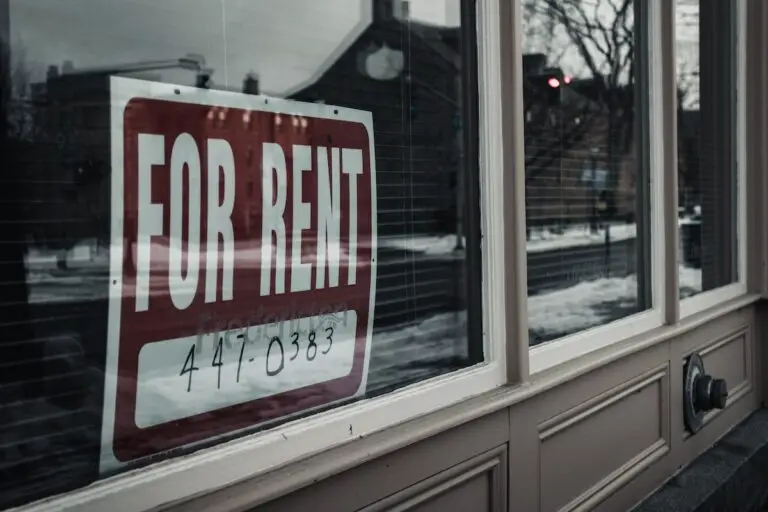What Does Active Under Contract Mean in Real Estate?

When you’re navigating the complex world of real estate, you might come across a listing that’s marked as “active under contract”. This term, often found in property listings, can be puzzling for both first-time homebuyers and seasoned real estate enthusiasts.
So, what exactly does “active under contract” mean, and how does it impact your home buying or selling process?
Understanding “Active Under Contract”
At its core, “active under contract” is a real estate term used to describe a situation where a seller has accepted an offer on a property, but certain conditions, often referred to as contingencies, remain unresolved. These contingencies could include a home inspection, buyer financing approval, or the sale of another property.
The Buyer-Seller Dynamics
From a buyer’s perspective, finding a home you love only to see it’s “active under contract” can be disheartening. However, it’s not always the end of the road. This status indicates that while the seller has an agreement with a buyer, there are still hurdles to clear before the sale is final. For the seller, this status means they are tentatively committed to a buyer but can still accept backup offers in case the current deal falls through.
How It Differs from “Pending” Status
It’s crucial to differentiate “active under contract” from a “pending” status. A pending status means all contingencies have been met, and the deal is closer to closing. In contrast, an “active under contract” property is still in a more tentative stage of the selling process.
Why Does This Matter to Buyers and Sellers?
For Buyers: If you’re interested in a property that’s active under contract, you can still express your interest to the listing agent. In some cases, you might be able to submit a backup offer. This could become primary if the initial deal falls apart.
For Sellers: This status allows you to keep your property listed and garner interest, providing a safety net should the current deal not finalize.
A Real-Life Scenario
Imagine you’re house hunting and stumble upon your dream home, but it’s listed as “active under contract”. You reach out to your realtor, who explains that the current offer on the house is contingent on the buyer selling their existing home. Your realtor advises you to submit a backup offer, which the seller accepts. Two weeks later, the original buyer’s deal falls through, and your offer moves to the forefront. Suddenly, you’re on your way to owning your dream home.
Navigating the Market
As a buyer, it’s important to work with a knowledgeable real estate agent who can guide you through these nuances. For sellers, understanding the implications of different listing statuses can help you make informed decisions about accepting and negotiating offers.
Expert Insights and Tips
To further solidify your understanding, here are some expert tips and insights:
1. Stay Informed
Real estate markets can vary significantly by location and time. It’s crucial for both buyers and sellers to stay updated on market trends and understand how terms like “active under contract” are used in their specific area.
2. Communicate with Your Agent
If you’re a buyer interested in a property that’s active under contract, communicate your interest to your agent. They can provide valuable advice on the feasibility of submitting a backup offer and keep you informed about any changes in the property’s status.
3. Understand the Contingencies
Familiarize yourself with common contingencies involved in real estate transactions. Knowing what these contingencies entail can help you gauge the likelihood of an “active under contract” property becoming available again.
4. Be Proactive
For sellers, while your property is active under contract, continue to engage with potential buyers. This proactive approach ensures that you have options if the current contract doesn’t materialize into a sale.
5. Patience is Key
Real estate transactions can be unpredictable. Whether you’re a buyer or a seller, patience is essential. Deals can fall through, or new opportunities can arise unexpectedly.
The Bigger Picture
Understanding “active under contract” is just one piece of the real estate puzzle. This knowledge, combined with a proactive approach and the guidance of a skilled real estate agent, can significantly enhance your real estate journey.
Leveraging This Knowledge
For Buyers: Keep an open mind. If a property you love is active under contract, explore other listings while keeping a watchful eye on your preferred one. Market dynamics can change quickly.
For Sellers: Use the active under contract status to your advantage. It allows you to keep marketing your property while moving forward with a potential buyer.
Final Thoughts
Understanding the nuances of real estate terms like “active under contract” can significantly influence your approach to buying or selling property. When a home is listed as such on a multiple listing service or real estate websites, it indicates that while a sale is pending, certain conditions, such as a home sale contingency, are yet to be met. This stage of a real estate transaction is crucial for both interested buyers and sellers. For buyers, especially in the early stages of their search, staying vigilant about listings and maintaining open communication with real estate agents can uncover opportunities for backup offers. This is particularly relevant if the initial sale falls through due to contingencies like mortgage financing not being approved.
On the flip side, for sellers, an “active under contract” status doesn’t mean your property is entirely off the market. It’s a signal to continue engaging with prospective buyers and to be prepared for the possibility of the initial deal not finalizing. Real estate listings in this phase offer a unique opportunity; they allow sellers to have a kind of safety net in the form of backup offers. This is especially important to consider if you’re relying on the sale of your current property to finance a new purchase. Both buyers and sellers must remember that each stage of a real estate transaction brings its own set of challenges and opportunities. Navigating them with the right information and guidance is key to a successful property transaction.






